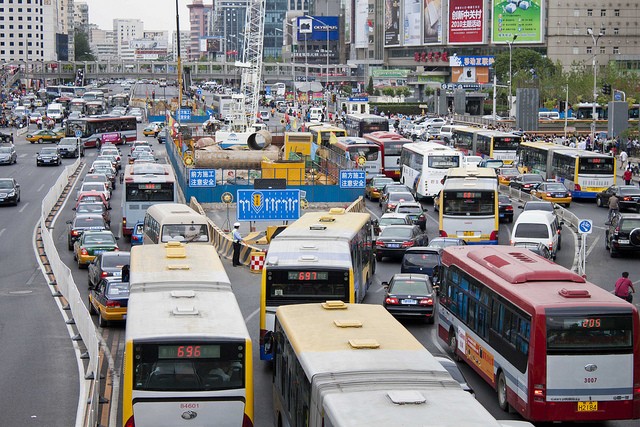China's surging economic growth, which has seen millions of people move from rural parts of the country to populate its cities, has been widely praised, but it seems that the country is just beginning to grapple with the social implications of this growth.
Currently, over 600 million of China's 1.4 billion population reside in cities dotted across the giant country. Over the past decade, local sources say the number of private vehicles in the country has increased dramatically and experts say the rate of rural-urban migration is only set to increase.
Some of the most apparent effects of the large-scale rural-urban migration have been pollution and traffic congestion. In the latest TomTom Traffic Index, Chinese cities make up about 32 percent of the top 50 most congested cities in the world.
Most prominent among these cities are Beijing and Shanghai. Last year, a survey by Peking University's National Development Research Institute revealed that the traffic congestion in Beijing costs the city up to 70 billion yuan ($11.3 billion) yearly.
Authorities in Beijing and Shanghai have sought to limit the number of license plates that are issued yearly, but reports indicate that vehicles with non-local license plates are increasing instead.
Experts have suggested that the government invest in public transport system, while simultaneously making it expensive for people to use vehicles in the city by introducing toll booths and taxes for environmental pollution.
"Many cities--such as Tokyo--in developed countries encountered similar problems in the 1960s and 1970s," explains Chen Yanyan, a professor at the Beijing University of Technology Transport Research Center. "These cities have developed public transportation systems, and now most people in them rely on these systems rather than using their cars to commute."
In 2013, the State Council pledged to develop environmentally friendly public transport systems and offer subsidies and tax cuts to mass transit vehicles. At the moment, several railway projects are underway in the country.



























